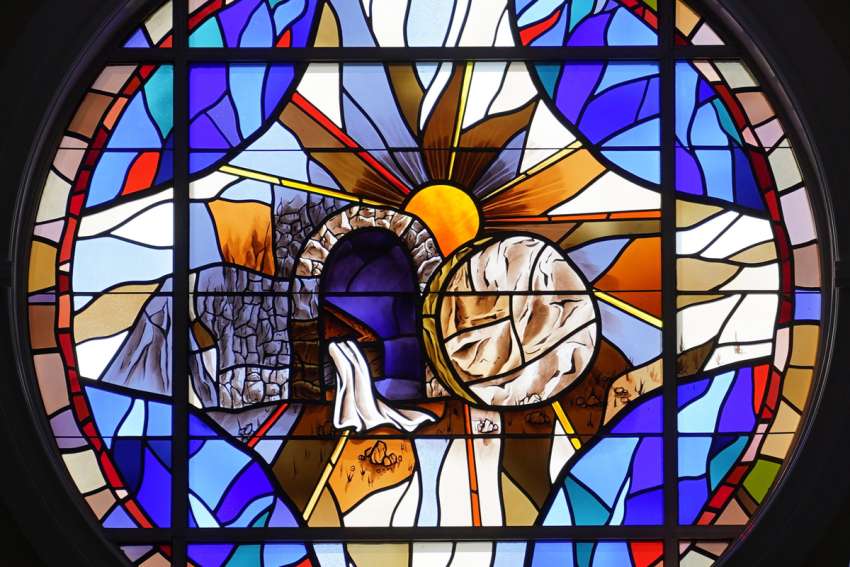Why should anyone care? Very simple — He had been declared the judge of the living and the dead. All who believe in Him (and that means living out this belief) will be granted forgiveness of sins.
How far we have drifted from that very simple message. Our relationship with the Lord depends on how fervently we believe in this message and at least attempt to pattern our lives on it. No one can come between us and that promise that Jesus made — it is personal and direct.
In the two verses omitted in the lectionary, the apostles explain that they had discovered something else that was an eye-opener. God was not a respecter of persons or labels. Anyone in any country or walk of life who feared God and struggled to do good was acceptable to God. That has been so often overlooked or forgotten but its implications are momentous.
Colossians was very clear: if we have been raised with Christ, then we must dwell with Him where He is — with God. Baptism was a ritualized death; one died to the old self, allowing the new self to be born. This was accomplished by seeking the things that are above, in other words, divine laws and principles rather than earthly ones. One of the many things contributing to the decline and death of Christianity is our insistence on continuing in earthly values and ways of thinking while mouthing spiritual platitudes. If we want to dwell with Christ, we need to begin thinking and acting like Him and paying less attention to what our culture dishes up.
What does “rising from the dead” mean? The apostles were not sure, for there were many competing views of life after death in the first century. The confusion is not helped by the conflicting accounts of the empty tomb. In Matthew, Mark and Luke, a group of women went to the tomb to anoint the body of Jesus. In John, only Mary Magdalene went, and the body of Jesus had already been anointed by Nicodemus and Joseph of Arimathea. Like witnesses to a great event, everyone saw and heard different things. But they all agree that the tomb was empty — Jesus was nowhere to be seen. Peter and the Beloved Disciple raced to the tomb and confirmed that it was empty, but they did not fully understand, although the Beloved Disciple “saw and believed.” What exactly he believed was unclear.
There is a coded message in the tomb: the face covering was carefully and deliberately rolled up and set to one side. This was a conscious act, not the frenzy of tomb robbers. Death was finished — there was no further need for the cloth. Strangely, the two apostles returned home without comment, leaving Mary Magdalene to weep in the garden. Jesus approached her in the garden and asked why she was weeping. She had misunderstood the significance of the rolled-up face cloth. If she had understood, she wouldn’t have been weeping. It was only when He spoke her name that she recognized Him. He gave her an important message for the apostles: I am ascending to my Father and your Father, to my God and your God!
Like a persistent drumbeat throughout the Gospel of John, Jesus had insisted that no one knew God or had ever been in God’s presence. He alone could speak on behalf of God, for He had come from above. And just as consistently, Jesus had promised abundant life, eternal life, spiritual rebirth, living water and friendship with the divine. Now the moment was at hand — access to dwelling in the divine life was open to all willing to walk the path of Jesus. He was and is the way, the truth, and the life.


